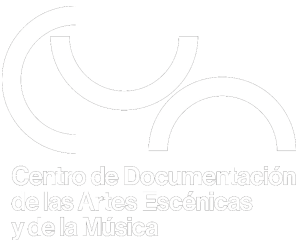High clefs and down-to-earth transposition (Registro nro. 123012)
[ vista simple ]
| 000 -LEADER | |
|---|---|
| fixed length control field | 01303nab a2200181 c 4500 |
| 001 - CONTROL NUMBER | |
| control field | myd_86593 |
| 003 - CONTROL NUMBER IDENTIFIER | |
| control field | ES-MaCDM |
| 005 - DATE AND TIME OF LATEST TRANSACTION | |
| control field | 20240917124642.0 |
| 008 - FIXED-LENGTH DATA ELEMENTS--GENERAL INFORMATION | |
| fixed length control field | 181003s2012 sp ||||fr 00| u|spa u |
| 040 ## - CATALOGING SOURCE | |
| Original cataloging agency | ES-MaCDM |
| 100 1# - MAIN ENTRY--PERSONAL NAME | |
| Personal name | Parrott, Andrew |
| 9 (RLIN) | 131243 |
| 245 0# - TITLE STATEMENT | |
| Title | High clefs and down-to-earth transposition |
| Remainder of title | a brief defence of Monteverdi |
| Statement of responsibility, etc | PARROTT, Andrew |
| 260 ## - PUBLICATION, DISTRIBUTION, ETC. (IMPRINT) | |
| Date of publication, distribution, etc | 2012: |
| Name of publisher, distributor, etc | Oxford University Press, |
| Place of publication, distribution, etc | London; Oxford |
| 520 ## - SUMMARY, ETC. | |
| Summary, etc | RESUMEN: Focusing on tha Magnificat a7 in Monteverdi´s 1610 publication, this article repudiates the recently repeated proposal by Roger Bowers that its high-clef notation demands transposition down a mere 2nd (for which there is no known contemporary precedent);100 clear instancesof transposition by the convetional 4th (and 5th) are listed. Besides its implausible resultant Fminor, the narrower transposition cannot be justified on the basis of perceived "inconsistencies" of range, as Monteverdi´s own music (and others) provides ample avidence of lower vocal scoring tham is expected today. Keywords: Claudio Monteverdi, 1610 Verpers, Magnificat a7, high clefs, transposition, vocal range, Thomas Morley, Roger Bowers. |
| 773 0# - HOST ITEM ENTRY | |
| Title | Early Music |
| Host Biblionumber | 72886 |
| Record control number | myd_16029 |
| Relationship information | Vol. 40, núm. 1,Feb. 2012, p. 81 |
| 903 ## - LOCAL DATA ELEMENT C, LDC (RLIN) | |
| a | 86593 |
| b | 86593 |
| 942 ## - ADDED ENTRY ELEMENTS (KOHA) | |
| Koha item type | Artículos de revista |
No hay ítems disponibles.

